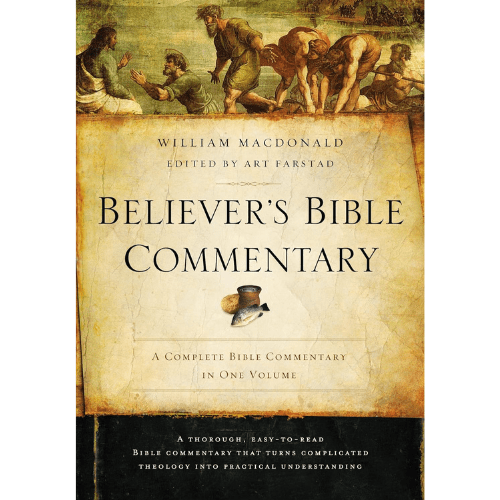Have you ever wondered what it truly means to endure in faith, even when trials seem overwhelming? The Book of Hebrews answers this question by pointing us to Jesus—our High Priest, our mediator, and the fulfillment of God’s promises.
Unlike other New Testament letters, Hebrews reads like a powerful sermon, urging us to remain steadfast in our faith. It systematically proves that Jesus is greater than angels, Moses, and the Levitical priesthood. Though written to early Jewish Christians facing persecution, its message still speaks to us today.
The Book of Hebrews reminds us that faith is not just about belief but about perseverance. It warns against falling away and calls us to endurance. Through rich Old Testament references, it bridges Jewish traditions with the gospel of Christ, showing us how Jesus fulfills the law and establishes the New Covenant.
At its core, Hebrews presents Jesus as our ultimate High Priest. Unlike the priests of old, He offered Himself as the final, perfect sacrifice. Because of Him, we no longer rely on temple rituals but on His finished work.
This book challenges us to hold fast, trust in Christ, and walk by faith. Will we answer the call to endurance?
Writer of the Book of Hebrews
Who wrote the Book of Hebrews? That question has intrigued scholars and believers for centuries. Unlike Paul’s letters, Hebrews does not include a personal greeting or signature. Because of this, the author remains unknown.
Early church tradition sometimes credited Paul, but the polished Greek and unique structure suggest otherwise. Some believe Apollos, a well-educated Jewish Christian, could have written it. Others suggest Barnabas, a close companion of Paul, or even Luke, the Gospel writer. A few scholars propose Clement of Rome as a possibility.
Although we cannot be certain of the author, one thing is clear—the Book of Hebrews is deeply rooted in Old Testament theology. The writer had a profound understanding of Jewish traditions and how Christ fulfilled them. More importantly, the early church recognized its divine inspiration. Despite the mystery surrounding its authorship, Hebrews was included in the New Testament because of its apostolic authority and powerful message.
Ultimately, the focus is not on the writer but on the message. The Book of Hebrews calls us to unwavering faith in Christ, the true High Priest, and the mediator of the New Covenant.
Date Written
When was the Book of Hebrews written? While we cannot pinpoint an exact date, most scholars agree it was likely between A.D. 60-70. Several clues within the text support this time frame.
First, the Book of Hebrews repeatedly mentions the temple sacrifices as ongoing. Since the Jerusalem Temple was destroyed in A.D. 70, the letter was probably written before that event. If the temple had already fallen, the author would have likely referenced it to strengthen the argument for Christ’s superior sacrifice.
Additionally, the letter addresses severe persecution among early believers. This fits within the reign of Emperor Nero (A.D. 54-68), when Christians faced growing hostility. The urgent warnings against falling away suggest that readers were enduring real threats to their faith.
Although we do not know the exact year, the Book of Hebrews clearly speaks to a time of transition. The old covenant system was fading, and believers needed encouragement to hold fast to Christ. Even today, its message remains relevant as we navigate challenges to our own faith.
To Whom Written
The Book of Hebrews was written primarily to Jewish Christians who were struggling with persecution and wavering in their faith. Many faced pressure from their families and communities to return to Judaism. Because of this, they needed reassurance that following Christ was worth the cost.
These believers endured social rejection, economic hardship, and possibly even physical threats. Some may have hesitated to fully embrace Christ, fearing they were abandoning the Mosaic Law. However, the Book of Hebrews systematically proves that Jesus is the fulfillment of the law, not its replacement. By using Old Testament references, the writer shows how Christ’s priesthood and sacrifice surpass the old covenant.
Although directed at Jewish Christians, this letter also benefits Gentile believers. It provides a deeper understanding of Jewish traditions and how they point to Jesus. It reminds all of us that faith requires endurance, especially during trials.
Ultimately, the Book of Hebrews was written to anyone tempted to turn back when faith becomes difficult. Its message remains as relevant today as it was for those early Christians—hold fast to Jesus, for He is greater than anything we leave behind.
Purpose of the Book of Hebrews
The Book of Hebrews was written to encourage believers to stand firm in their faith and recognize the supremacy of Christ. Many early Christians, especially Jewish believers, faced intense persecution and pressure to return to Judaism. Because of this, they needed reassurance that following Jesus was worth the cost.
One of the main purposes of the Book of Hebrews is to prove that Jesus is greater than anything found in the old covenant. The author systematically shows that Christ is superior to angels, Moses, and the Levitical priesthood. More importantly, Jesus’ sacrifice is final and complete, unlike the repeated animal sacrifices of the temple.
Hebrews also warns against falling away from the faith. Passages like Hebrews 6:4-6 and Hebrews 10:26-31 remind us that rejecting Christ after knowing the truth is a serious matter. These warnings urge us to remain faithful, even in difficult times.
Additionally, the Book of Hebrews clarifies the transition from the Old Covenant to the New. It emphasizes that Christ’s death fulfills the law, making the temple sacrifices obsolete. Rather than relying on rituals, we are called to trust in Jesus’ finished work.
Ultimately, Hebrews calls us to unwavering faith, endurance, and confidence in Christ, our perfect High Priest.
Historical Context of the Book of Hebrews
The Book of Hebrews was written during a time of great turmoil for early Jewish Christians. They faced intense persecution from both Jewish leaders and the Roman government. Many were ostracized by their families and communities for choosing to follow Christ.
At this time, the Jerusalem Temple was still standing, and sacrifices continued. Because of this, Jewish believers felt pressured to return to temple rituals and Mosaic Law. Abandoning these traditions often meant losing their livelihoods, relationships, and social standing.
Meanwhile, Roman persecution of Christians was increasing. Emperor Nero, who ruled from A.D. 54-68, used Christians as scapegoats, leading to imprisonments and executions. Many believers were forced to decide—stand firm in faith or retreat to the safety of Judaism.
This explains why the Book of Hebrews emphasizes endurance and unwavering trust in Christ. The author reminds us that suffering is part of the Christian life. However, we are not to shrink back but to press forward in faith.
Above all, Hebrews encourages believers to look beyond earthly struggles. The finality of Christ’s sacrifice means we no longer need the old system. Instead, our true hope is in God’s eternal kingdom.
Believer’s Bible Commentary
Make Bible study a part of your daily life with the thorough yet easy-to-read commentary that turns complicated theology into practical understanding.
Key Themes in the Book of Hebrews
The Book of Hebrews is rich with theological depth and practical encouragement. It reminds us of Christ’s supremacy, the power of faith, and the need for endurance. Through vivid Old Testament references, it calls us to trust in Jesus completely.
The Superiority of Christ
From the very beginning, the Book of Hebrews declares that Jesus is greater than angels, Moses, and the Levitical priesthood. While angels delivered messages from God, Christ is the ultimate revelation (Hebrews 1:1-4). Moses was a faithful servant, but Jesus is the Son who rules over God’s house (Hebrews 3:1-6). The Levitical priests offered repeated sacrifices, but Jesus’ sacrifice was once for all (Hebrews 7:26-28).
The New Covenant
The Old Covenant, based on the Mosaic Law, was temporary. The Book of Hebrews teaches that Christ mediates a better covenant with better promises (Hebrews 8:6). His sacrifice makes the old system of temple sacrifices obsolete (Hebrews 10:1-10). Through Him, we have direct access to God.
Faith and Endurance
Faith is central to the Christian life. Hebrews 11, often called the “Hall of Faith,” highlights those who endured trials by faith. Their examples inspire us to press on, trusting God’s promises.
Warnings Against Apostasy
The Book of Hebrews contains strong warnings about falling away (Hebrews 6:4-6; 10:26-31). It urges us to remain faithful and not turn back.
Jesus as the Great High Priest
Unlike human priests, Jesus’ priesthood is eternal and perfect (Hebrews 4:14-16). He intercedes for us, providing mercy and grace in every trial.
Major Events/Stories in the Book of Hebrews
The Book of Hebrews takes us on a journey through Scripture, showing how Jesus is superior to everything that came before Him. It begins by establishing Christ’s divine nature, proving that He is greater than angels (Hebrews 1-2). While angels were messengers of God, Jesus is the very Word of God, fully revealing the Father to us.
Next, Hebrews compares Jesus to Moses, one of Israel’s greatest leaders (Hebrews 3-4). Although Moses faithfully led God’s people, Christ surpasses him as the Son over God’s house. Because of this, we are called to trust in Jesus and enter God’s promised rest.
The Book of Hebrews also introduces Jesus as our eternal High Priest (Hebrews 5-7). Unlike the Levitical priests, who offered daily sacrifices, Jesus serves forever in the order of Melchizedek. His priesthood is unshakable, and His sacrifice is once for all.
Hebrews then contrasts the Old and New Covenants (Hebrews 8-10). The old system, based on repeated sacrifices, is now obsolete. Through Christ’s perfect sacrifice, we have direct access to God.
One of the most inspiring sections is the Hall of Faith (Hebrews 11). It recounts how Old Testament figures endured trials by faith, reminding us to do the same.
Finally, the Book of Hebrews encourages us to persevere (Hebrews 12-13). Since we are surrounded by faithful witnesses, we must run with endurance, keeping our eyes on Jesus.
Theological Contributions from the Book of Hebrews
The Book of Hebrews provides rich theological insights that deepen our understanding of Christ and His role in God’s redemptive plan. It reminds us that Jesus is not only our Savior but also our High Priest, our mediator, and the fulfillment of God’s promises.
Christ’s Eternal Priesthood
Unlike earthly priests who served for a limited time, Jesus holds an eternal priesthood (Hebrews 7:24-25). He continually intercedes for us, ensuring that we have access to God. Because He is both fully God and fully human, He understands our struggles and represents us perfectly before the Father.
The Once-for-All Sacrifice
The Book of Hebrews emphasizes that Jesus’ sacrifice was final and complete (Hebrews 9:26-28). Unlike the Old Testament system, which required repeated sacrifices, Christ’s death on the cross fully atoned for sin. This means we no longer need rituals to approach God—His grace is sufficient.
Faith as the Basis of Righteousness
Hebrews 11, often called the “Hall of Faith,” highlights that righteousness has always come through faith. From Abraham to Moses, God’s people lived by trusting His promises. This chapter challenges us to walk by faith, even when we cannot see the outcome.
God’s Final Revelation in Christ
The Book of Hebrews opens by declaring that Jesus is the ultimate revelation of God (Hebrews 1:1-2). While God spoke through prophets in the past, He now speaks through His Son, who perfectly reveals the Father’s will.
The New Covenant Supersedes the Old
The Old Covenant was temporary, but Christ established a better, everlasting covenant (Hebrews 8:6-13). The law was a shadow of things to come, but Jesus is the reality. Through Him, we have direct access to God.
Special Considerations in the Book of Hebrews
The Book of Hebrews contains some of the strongest warnings in the New Testament. Passages like Hebrews 6:4-6 and 10:26-31 raise serious theological discussions about eternal security and apostasy. Some believe these verses warn against losing salvation, while others see them as calls to avoid spiritual complacency. Regardless of interpretation, they remind us to remain steadfast in our faith.
Another challenge in reading Hebrews is its deep connection to Old Testament law and sacrifices. Readers unfamiliar with Jewish customs may find certain passages difficult to grasp. However, these references are essential because they highlight how Jesus fulfills the Old Testament system. Understanding the law’s purpose helps us appreciate Christ’s perfect sacrifice.
Additionally, the Book of Hebrews calls us to spiritual growth. Hebrews 5:12-14 warns against remaining immature in our faith. Instead of relying only on basic teachings, we are encouraged to grow in understanding and develop a deeper relationship with Christ.
Ultimately, Hebrews challenges us to examine our faith. It urges us to trust fully in Jesus, remain committed despite trials, and mature in our walk with God.
Final Thoughts on the Book of Hebrews
The Book of Hebrews is a powerful reminder that our faith must be rooted in Christ alone. It presents Jesus as the fulfillment of the Old Testament, our eternal High Priest, and the mediator of the New Covenant. Because of Him, we no longer rely on sacrifices or rituals—His work is complete.
Throughout the Book of Hebrews, we are urged to stand firm despite trials. Faith has always been the foundation of a relationship with God, from Abraham to the early church. Even when difficulties arise, we are called to persevere, trusting in God’s promises.
Additionally, Hebrews warns us against drifting away. It challenges us to grow spiritually, moving beyond basic teachings and deepening our understanding of Christ. True faith is not passive—it requires endurance and commitment.
Even today, the Book of Hebrews speaks directly to our hearts. It calls us to trust Jesus fully, remain faithful through hardships, and fix our eyes on Him. When we stand firm in faith, we embrace the hope and victory that Christ has already secured for us. Will we answer the call to endurance?
Frequently Asked Questions (FAQ) – Book of Hebrews
1. Who wrote the Book of Hebrews? The author of the Book of Hebrews remains unknown. While some early traditions attributed it to Paul, the writing style and structure differ from his letters. Other possible authors include Apollos, Barnabas, or Luke. Regardless of authorship, the early church recognized Hebrews as inspired Scripture.
2. What is the main purpose of the Book of Hebrews? The Book of Hebrews was written to encourage believers to remain steadfast in faith and to emphasize Christ’s supremacy. It systematically proves that Jesus is greater than angels, Moses, and the Levitical priesthood. It also warns against falling away and highlights the New Covenant, which replaces the old sacrificial system.
3. Why does the Book of Hebrews focus so much on the Old Testament? Hebrews was written primarily to Jewish Christians who were tempted to return to Judaism. By using Old Testament references, the author shows that Jesus is the fulfillment of the law and the prophets. This helps believers understand that Christ’s sacrifice is superior to the old covenant.
4. What are the strongest warnings in Hebrews? Hebrews contains serious warnings about falling away from the faith, especially in Hebrews 6:4-6 and Hebrews 10:26-31. These passages remind us of the dangers of rejecting Christ and encourage perseverance in faith.
5. How does the Book of Hebrews apply to us today? Hebrews teaches us to trust in Jesus fully, endure trials with faith, and grow spiritually. It reminds us that our hope is in Christ, our eternal High Priest, and that we must remain faithful to the end.




